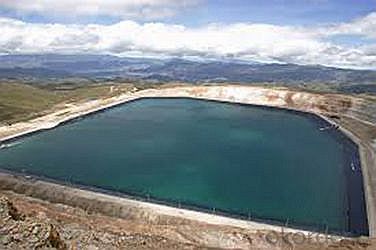- Understanding the Role of Geomembrane Liners in Waste Management
- Innovations in Geomembrane Liners for Water Management
- Geomembrane Liners: A Comprehensive Guide
- The Future of Geomembrane Liners in Civil Engineering
- Geomembrane Liners: Enhancing Landfill Stability
Manager:
WhatsApp:+86 177 0135 2670
Tel:+86 177 0135 2670
Email:marketing@okorder.com
Address:3rd Floor, No.2 Building, No.1 Sanlihe Road
HDPE Geomembranes in the Construction of Canals and Ditches
When it comes to constructing canals and ditches, the choice of materials is crucial. hdpe Geomembranes have become a popular choice due to their numerous advantages. Let's dive into the world of HDPE geomembranes and explore their benefits, installation process, and maintenance, all with a touch of personal flair and a sprinkle of emotion to keep things interesting.

The Wonders of HDPE Geomembranes
Imagine a material that is not only durable and long-lasting but also cost-effective and environmentally friendly. That's HDPE geomembranes for you! They are made from high-density polyethylene, a type of plastic that is known for its strength and flexibility. These geomembranes are used to line canals and ditches to prevent leakage and protect the surrounding environment.
Why Choose HDPE?
There are several reasons why HDPE geomembranes are the go-to choice for many construction projects. They are resistant to chemicals, UV radiation, and temperature changes, making them perfect for outdoor applications. Moreover, HDPE is lightweight, which simplifies the installation process and reduces labor costs.
Installation: A Step-by-Step Journey
The installation of HDPE geomembranes is a meticulous process that requires careful planning and execution. The first step is to prepare the surface of the canal or ditch, ensuring it is clean, smooth, and free of any debris. Next, the geomembrane is unrolled and carefully placed over the surface, taking care to avoid any wrinkles or folds. The seams are then sealed using specialized techniques to ensure a watertight barrier.
The Art of Seam Sealing
Seam sealing is an essential part of the installation process. It involves using hot air or extrusion welding to fuse the edges of the geomembrane together. This creates a strong bond that prevents any leakage. The process requires skill and precision, as any mistakes can compromise the integrity of the seal.
Maintenance: A Love Letter to Your HDPE Geomembranes
Once your HDPE geomembranes are installed, it's essential to take care of them to ensure they continue to serve their purpose effectively. Regular inspections are necessary to check for any signs of wear or damage. If any issues are detected, they should be addressed promptly to prevent further deterioration.
The Environmental Impact
HDPE geomembranes are not only beneficial for the construction of canals and ditches but also for the environment. They help prevent soil and water contamination by acting as a barrier between the canal or ditch and the surrounding environment. This is particularly important in areas where the water may come into contact with hazardous substances.
The Future of HDPE Geomembranes
As technology advances, so does the development of HDPE geomembranes. Researchers are constantly looking for ways to improve their durability, flexibility, and environmental friendliness. The future looks bright for HDPE geomembranes, with new applications and innovations on the horizon.
In Conclusion
HDPE geomembranes are a fantastic choice for canal and ditch construction projects. They offer a range of benefits, from their durability and cost-effectiveness to their environmental advantages. With proper installation and maintenance, these geomembranes can serve you well for many years to come. So, the next time you're planning a construction project, consider giving HDPE geomembranes a chance. You might just fall in love with their versatility and reliability.
- Previous:HDPE Geomembrane: A Durable Solution for Industrial Applications
- Next:HDPE Geomembrane Installation: Best Practices and Techniques
-
2024-12-05Geomembrane Liners: A Comprehensive Guide






